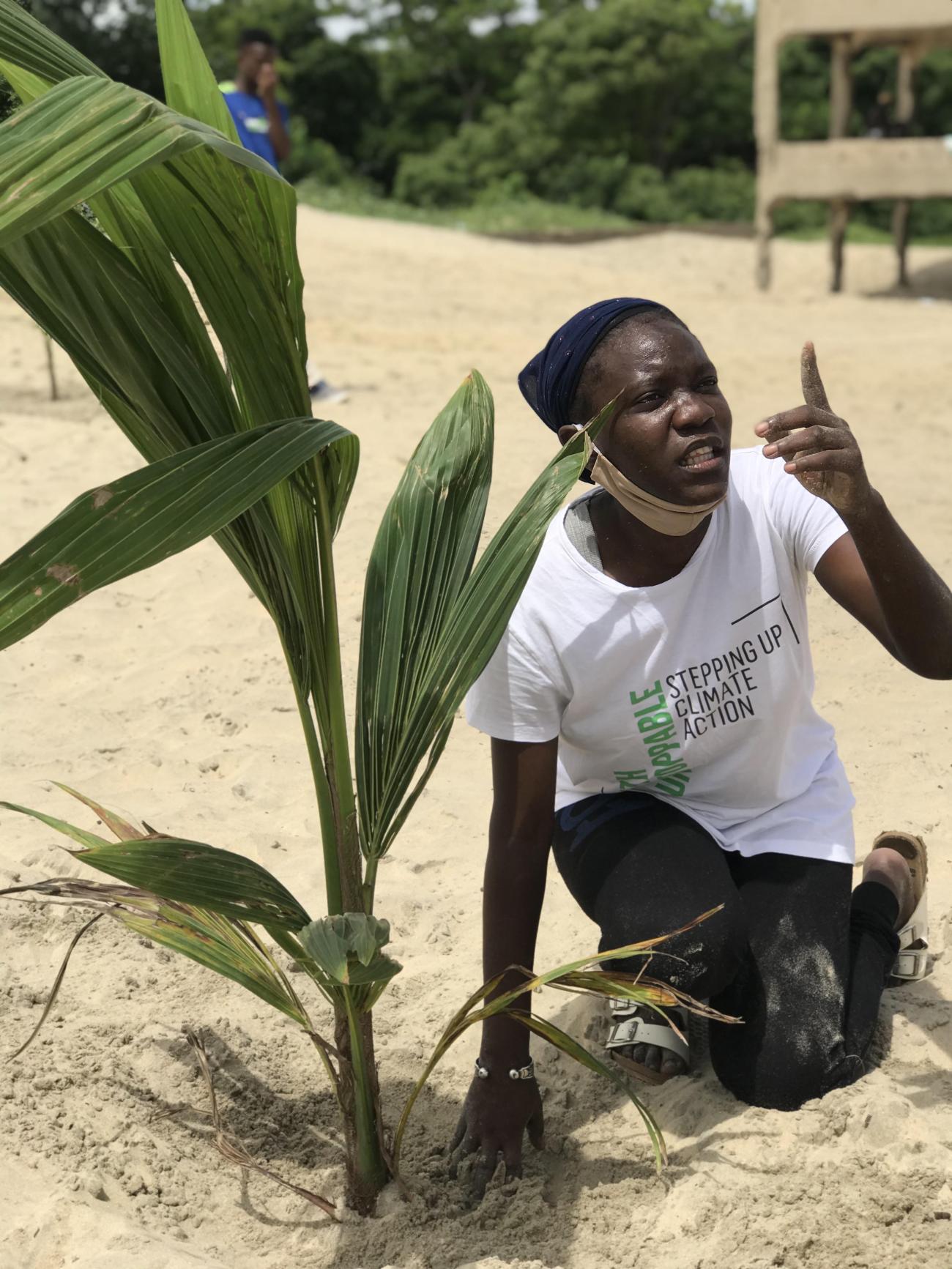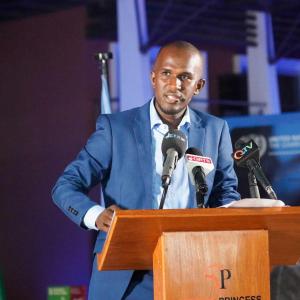Intense, world-changing temperatures, floods, and unprecedented heat waves—are driving home a sobering reality: Our planet is changing before our eyes and we are digging our own graves. If there is anything this tells us, it is the urgency to take action to save the planet for generations to come regardless of age, faith or sex.
Age is no obstacle for creating an impact, as Fatou Jeng shows. Her hometown of Banjul in The Gambia has suffered the detrimental effects of climate change. Sea level rise and coastal erosion present serious long-term challenges to Gambia's development. There is consensus that climate change could result in up to 1 m rise in the sea level which means Fatou’s home city of Banjul would experience severe floods. The Gambia is primarily low-lying and a 1 m rise in sea level could potentially inundate over 8% of the country's land area. She still dared to take immediate action to be the change she wants - choosing not just her safety but that of her entire community. A courageous but inspiring decision to dare to help create a better future.
This trailblazing youth climate activist has a lot under her belt, from founding the youth-led environmental non-government organization called Clean Earth Gambia. She serves as one of the 30 young people selected to organize the first-ever UN Youth Climate Summit in 2019. Outside of The Gambia, she is the policy operations lead for the Women and Gender United Nations Framework Convention on Climate Change Youth Constituency YOUNGO, where she has been a driving force for policy submissions on gender and climate change. In The Gambia, she has trained more than 500 school children about climate change and continues to spread awareness about environmental issues to local communities and youth organizations.
“Real change is driven by young people. If we want something done, we cannot leave it to the older generation and this is why I am at the forefront of trying to save our planet,” Fatou said. This year, she was recognized as one of the Top 100 Young African Conservation Leaders by the African Alliance of YMCAs, the African Wildlife Fund and a collection of many more international non-profit organizations.
As the founder of Clean Earth Gambia, she explains that the goal of the organization is to create awareness about issues concerning the environment, most importantly climate change, and teach and train more than 500 school children about climate change as well as environmental issues to local communities. Fatou is attending COP26 in Scotland as part of the young people worldwide who have gathered to hold their leaders accountable and demand action today. “I expect climate justice to be at the heart of COP26 with loss and damage and climate financing not only put on paper but effectively implemented because we have no time. We are facing a climate emergency,” an energized and excited Fatou said.
In September this year, The Gambia submitted their updated national climate plan, officially known as Nationally Determined Contribution under the Paris Agreement, showing a strong commitment to protecting this biodiversity and building resilience to future climate shocks while also decreasing overall greenhouse gas emissions. The UN has been supporting the government to keep global warming at 1.5 degrees and meet the goals of the Paris Agreement.
The UN continues to support capacity building efforts, and the provision of agricultural inputs and market opportunities for farmers and communities. Through nation-wide intervention, gender responsive Good Agricultural Practices (GAP) training was provided to 14,670 farmers through the establishment of 489 farmer field schools, exceeding the annual UNDAF target of 10,000 farmers.






